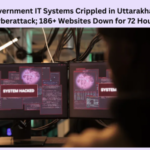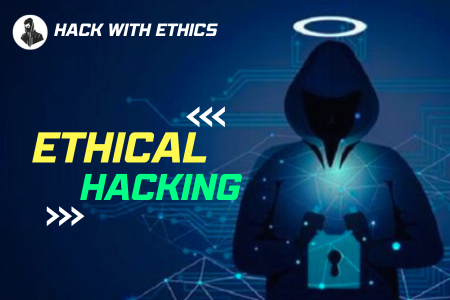Introduction:
In an interconnected world where technology plays a pivotal role, securing our digital infrastructure has become an imperative. As cyber threats continue to evolve and become increasingly sophisticated, it is essential to adopt proactive measures to protect our data, privacy, and online systems. This is where ethical hacking steps in – a powerful approach that aims to identify vulnerabilities, fortify defenses, and ultimately enhance overall security.
Ethical hacking, also known as penetration testing or white hat hacking, refers to the practice of authorized hacking conducted by skilled professionals to identify weaknesses in computer systems, networks, and applications. Unlike malicious hackers, ethical hackers work with organizations to uncover vulnerabilities and offer recommendations for remediation, ensuring a proactive and robust security posture.
This blog will serve as a gateway to the fascinating world of ethical hacking. We will explore its principles, methods, and the vital role it plays in safeguarding our digital landscape. So, fasten your seatbelts as we embark on a journey into the realm of responsible security and the ethical hacker’s toolbox.
- Understanding Ethical Hacking:
- Defining ethical hacking and its objectives
- Differentiating between ethical hackers and malicious hackers
- The ethical hacker’s code of conduct and legal considerations
- The Ethical Hacking Process:
- Scoping and planning: Defining the target systems and goals
- Reconnaissance and information gathering: Collecting intelligence about the target
- Vulnerability assessment: Identifying weaknesses and potential entry points
- Exploitation and penetration: Testing vulnerabilities and gaining access
- Post-exploitation: Assessing the impact and providing recommendations.
- Tools and Techniques:
- Network scanning and enumeration tools
- Web application testing frameworks
- Password cracking and privilege escalation techniques
- Social engineering methods and tactics
- Wireless network assessment tools
- Ethical Hacking Domains:
- Network security: Identifying network vulnerabilities and securing infrastructure.
- Web application security: Assessing and securing websites and web services.
- Mobile application security: Evaluating security risks in mobile apps
- Cloud security: Ensuring the security of cloud-based systems and services.
- Ethical Hacking Certifications and Careers:
- Recognized certifications for ethical hackers
- Roles and responsibilities in the field of ethical hacking
- Skills and knowledge required to become an ethical hacker
- Challenges and future prospects in the industry
Ethical hacking, as a critical aspect of cybersecurity, empowers organizations to proactively protect their digital assets and minimize the risk of cyber threats. By adopting an ethical hacking mindset, businesses can identify vulnerabilities before they are exploited by malicious actors and take appropriate measures to strengthen their security posture.
Join us in this exciting exploration of ethical hacking, where we delve into the methodologies, best practices, and the ever-evolving landscape of responsible security. Together, let’s discover how ethical hackers contribute to making our digital world safer and more resilient. Stay tuned for our upcoming articles as we unveil the secrets behind the ethical hacking profession.







